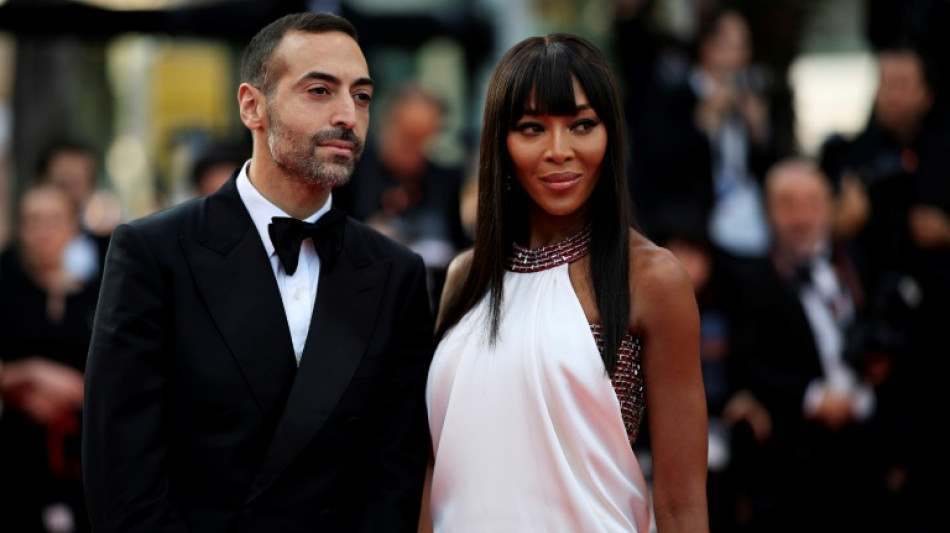
-
 What next for Vonn after painful end to Olympic dream?
What next for Vonn after painful end to Olympic dream?
-
Main trial begins in landmark US addiction case against Meta, YouTube
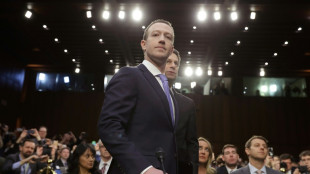
-
 South Africa open T20 World Cup campaign with Canada thrashing
South Africa open T20 World Cup campaign with Canada thrashing
-
Epstein accomplice Maxwell seeks Trump clemency before testimony
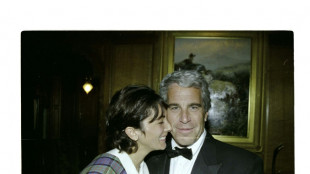
-
 Discord adopts facial recognition in child safety crackdown
Discord adopts facial recognition in child safety crackdown
-
Some striking NY nurses reach deal with employers
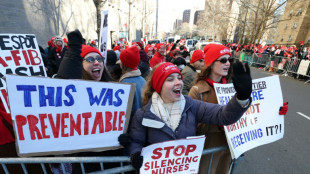
-
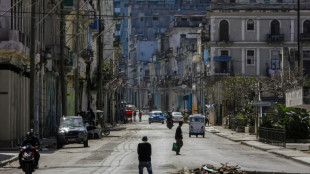 Emergency measures kick in as Cuban fuel supplies dwindle under US pressure
Emergency measures kick in as Cuban fuel supplies dwindle under US pressure
-
EU chief backs Made-in-Europe push for 'strategic' sectors
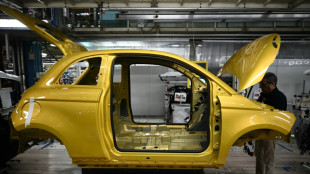
-
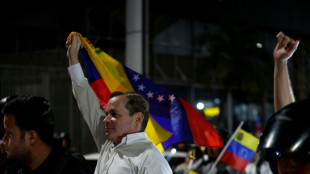 Machado ally 'kidnapped' after calling for Venezuela elections
Machado ally 'kidnapped' after calling for Venezuela elections
-
Epstein affair triggers crisis of trust in Norway
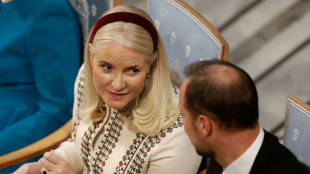
-
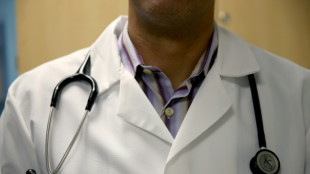 AI chatbots give bad health advice, research finds
AI chatbots give bad health advice, research finds
-
Iran steps up arrests while remaining positive on US talks
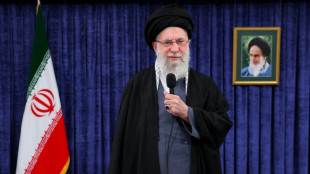
-
 Frank issues rallying cry for 'desperate' Tottenham
Frank issues rallying cry for 'desperate' Tottenham
-
South Africa pile up 213-4 against Canada in T20 World Cup
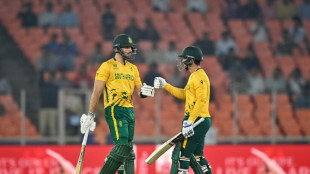
-
 Brazil seeks to restore block of Rumble video app
Brazil seeks to restore block of Rumble video app
-
Gu's hopes of Olympic triple gold dashed, Vonn still in hospital

-
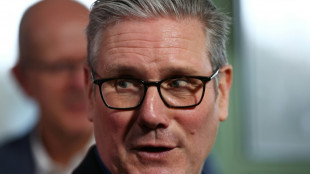 Pressure mounts on UK's Starmer as Scottish Labour leader urges him to quit
Pressure mounts on UK's Starmer as Scottish Labour leader urges him to quit
-
Macron backs ripping up vines as French wine sales dive
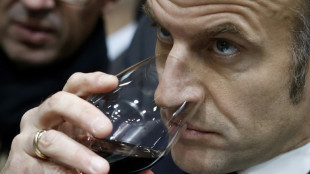
-
 Olympic freeski star Eileen Gu 'carrying weight of two countries'
Olympic freeski star Eileen Gu 'carrying weight of two countries'
-
Bank of France governor Francois Villeroy de Galhau to step down in June
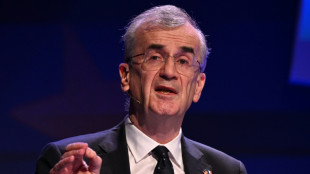
-
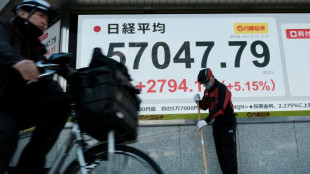 Tokyo stocks strike record high after Japanese premier wins vote
Tokyo stocks strike record high after Japanese premier wins vote
-
'I need to improve', says Haaland after barren spell
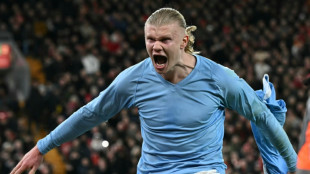
-
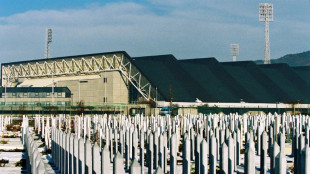 Italian suspect questioned over Sarajevo 'weekend snipers' killings: reports
Italian suspect questioned over Sarajevo 'weekend snipers' killings: reports
-
Von Allmen at the double as Nef seals Olympic team combined gold

-
 Newlyweds, but rivals, as Olympic duo pursue skeleton dreams
Newlyweds, but rivals, as Olympic duo pursue skeleton dreams
-
Carrick sees 'a lot more to do' to earn Man Utd job
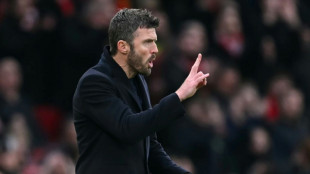
-
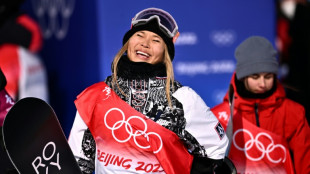 Olympic star Chloe Kim calls for 'compassion' after Trump attack on US teammate
Olympic star Chloe Kim calls for 'compassion' after Trump attack on US teammate
-
'All the pressure' on Pakistan as USA out to inflict another T20 shock

-
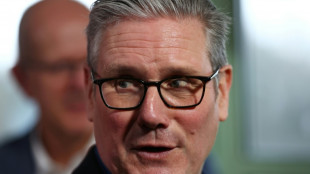 Starmer vows to remain as UK PM amid Epstein fallout
Starmer vows to remain as UK PM amid Epstein fallout
-
Howe would 'step aside' if right for Newcastle

-
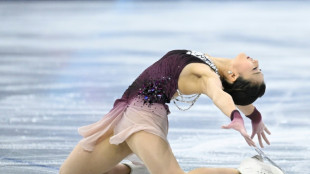 Sakamoto wants 'no regrets' as gold beckons in Olympic finale
Sakamoto wants 'no regrets' as gold beckons in Olympic finale
-
What next for Vonn after painful end of Olympic dream?

-
 Brain training reduces dementia risk by 25%, study finds
Brain training reduces dementia risk by 25%, study finds
-
Gremaud ends Gu's hopes of Olympic treble in freeski slopestyle

-
 Shiffrin and Johnson paired in Winter Olympics team combined
Shiffrin and Johnson paired in Winter Olympics team combined
-
UK's Starmer scrambles to limit Epstein fallout as aides quit
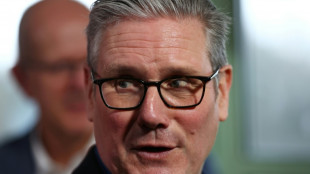
-
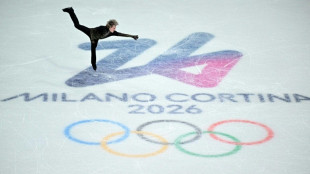 US skater Malinin 'full of confidence' after first Olympic gold
US skater Malinin 'full of confidence' after first Olympic gold
-
Sydney police pepper spray protesters during rallies against Israeli president's visit
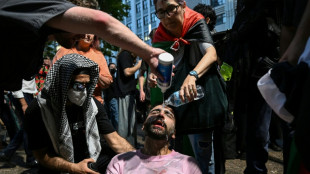
-
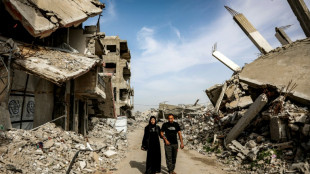 Israel says killed four militants exiting Gaza tunnel
Israel says killed four militants exiting Gaza tunnel
-
Franzoni sets pace in Olympic team combined

-
 Captain's injury agony mars 'emotional' Italy debut at T20 World Cup
Captain's injury agony mars 'emotional' Italy debut at T20 World Cup
-
Family matters: Thaksin's party down, maybe not out
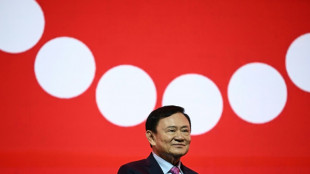
-
 African players in Europe: Ouattara fires another winner for Bees
African players in Europe: Ouattara fires another winner for Bees
-
Pressure grows on UK's Starmer over Epstein fallout
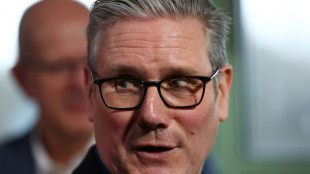
-
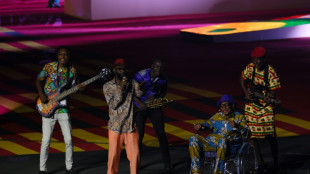 Music world mourns Ghana's Ebo Taylor, founding father of highlife
Music world mourns Ghana's Ebo Taylor, founding father of highlife
-
HK mogul's ex-workers 'broke down in tears' as they watched sentencing
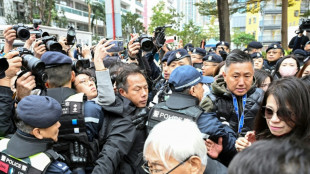
-
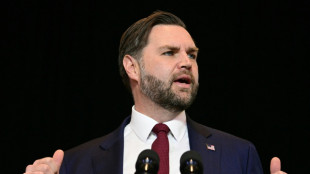 JD Vance set for Armenia, Azerbaijan trip
JD Vance set for Armenia, Azerbaijan trip
-
Sydney police deploy pepper spray as Israeli president's visit sparks protests
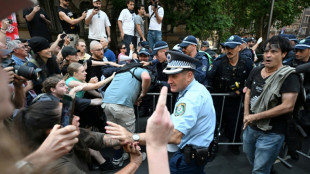
-
 EU warns Meta it must open up WhatsApp to rival AI chatbots
EU warns Meta it must open up WhatsApp to rival AI chatbots
-
Scotland spoil Italy's T20 World Cup debut with big win

| CMSC | -0.05% | 23.56 | $ | |
| SCS | 0.12% | 16.14 | $ | |
| BCC | -0.67% | 90.42 | $ | |
| JRI | -0.78% | 12.87 | $ | |
| BTI | -3.24% | 60.83 | $ | |
| NGG | -0.19% | 87.89 | $ | |
| GSK | -2.32% | 58.865 | $ | |
| BCE | 1.45% | 25.45 | $ | |
| AZN | -2.28% | 188.72 | $ | |
| RIO | 3.06% | 96.36 | $ | |
| RBGPF | 0.12% | 82.5 | $ | |
| RYCEF | 2.65% | 17.34 | $ | |
| CMSD | 0.13% | 23.98 | $ | |
| BP | 0.55% | 39.225 | $ | |
| RELX | -0.72% | 29.17 | $ | |
| VOD | 2.17% | 15.445 | $ |

Saudia Arabia's growing cinema soft power
Accompanying Naomi Campbell on the red carpet at the Cannes Film Festival last week was one of cinema's most powerful men -- and he represents a country where cinemas were banned until five years ago.
Mohammed Al Turki, 36, heads Saudi Arabia's Red Sea Film Foundation, his name splashed all over posters and movie credits at the world's biggest cinema gathering on the French Riviera.
The foundation, formed two years ago, holds its own annual festival and has already financed 168 movies, including eight in the official selection at Cannes this year.
Among them was festival opener "Jeanne du Barry" about a French prostitute falling in love with King Louis XV, played by Johnny Depp.
Others seemed equally at odds with traditional Saudi values -- female-focused films such as "Four Daughters" about the religious radicalisation of Tunisian girls, or "Goodbye Julia" about a Sudanese woman and her overbearing conservative husband.
"We have learned to respect other cultures," Emad Iskandar, director of the Red Sea Film Foundation, told AFP.
He said the foundation focuses on Arab and African filmmakers, though the precise definition seems flexible: the French director of "Jeanne du Barry", Maiwenn, qualified thanks to her Algerian father.
"As long as we have the resources, we want to serve the region, but also take the opportunity to learn more," Iskandar added.
Al Turki's foundation also sponsored a gala for women, attended by Catherine Deneuve, Katie Holmes and supermodel Campbell.
"MO!! Proud of all your doing @redseafilm creating history of many 1st's and Changing the narrative," Campbell wrote of Al Turki on her Instagram.
- Whitewashing? -
Saudi largesse for the arts has boomed under the kingdom's de facto ruler, Crown Prince Mohammed bin Salman, with billions pouring into previously taboo areas such as music, fashion and sports.
Human Rights Watch says this is designed to "whitewash its dismal rights record" and that, despite recent reforms, Saudi Arabia continues to repress civil society, execute dissidents, discriminate against women and bury the investigation into the 2018 murder of journalist Jamal Khashoggi.
But most Saudis back the reforms, and its officials say it is absurd to expect the kingdom to turn into a liberal paradise overnight.
Accusations of whitewashing "sadden us more than anything else," said Iskander.
"Come to visit and get to know Saudi Arabia and then talk about us. The West has arrived where it is after years of wars and debates. We are a 90-year-old state -- be patient."
In any case, the relentless PR campaign is working. The Saudi presence at Cannes felt less controversial than that of Depp, still widely branded as toxic since his court battle with ex-wife Amber Heard.
Cannes director Thierry Fremaux celebrated the kingdom's interest in "producing films and allowing artists to emerge".
"Saudi Arabia is evolving," he told Variety.
- 'More and more present' -
All over Cannes were adverts calling on producers and directors to shoot in Saudi Arabia, while its pavilion showed off the work of its own young directors.
"Every year Saudi Arabia asks for a bigger pavilion, more facilities, to be more and more present," said Guillaume Esmiol, head of the Cannes Film Market that runs alongside the festival.
Saudi Arabia is not the only country in the region investing massively in cinema: rival Qatar financed 13 films at Cannes this year, including three in the main competition.
Some have little or no connection to the Middle East.
"We have a lot of French productions," Fatma Hassan Alremaihi, Doha Film Institute CEO, told AFP.
"We don't want to be insular, we want our filmmakers to be open to other regions and other filmmakers and work with them."
She had no qualms that such investments were aimed at spreading Qatar's soft power.
"Who doesn't do that? The US does that with their Hollywood films... At least we are doing what we believe in, and we are not losing our identity at the same time."
X.Karnes--AMWN


